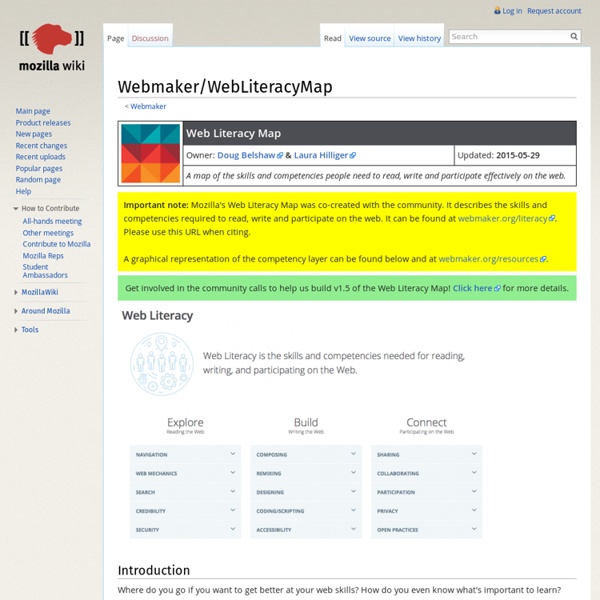Webmaker/WebLiteracyMap

The Never Ending Thesis
Teach
Your browser may lack functionality needed by Webmaker to function properly. Please upgrade your browser for an improved experience. Welcome to Webmaker! That username is taken You must choose a username Invalid username. You must agree to our terms and conditions. Let's teach the web! We've got creative ways to help anyone teach web literacy, digital skills and making.
Related:
Related:



